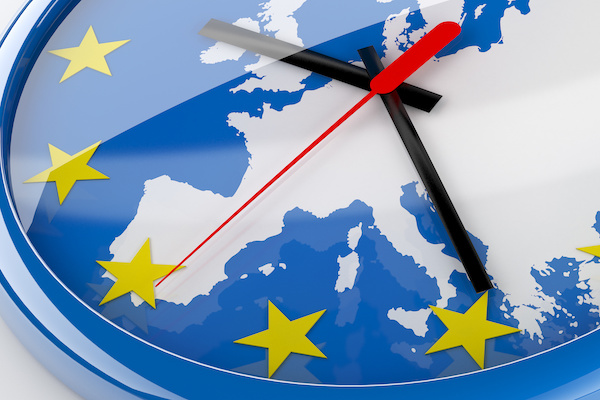24 November 2017
Climate leadership: the European Union must now turn words into tangible actions


The COP 23 UN Climate Change Conference that took place in Bonn from November 6th to 17th ended last Friday. There was neither major decision nor announcement to be expected from a COP mostly dedicated to preparing 2018 and the COP 24. Following the announcement that the United States would withdraw from the Paris agreement, the European Union, especially the Franco-German couple, wished to show their voluntarism to fight against climate change. UFE takes this opportunity to present the state of play of the Union’s climate policies.
Like COP22 in Marrakech, COP23 was a key milestone in the implementation of the Paris agreement: the specific rules set in the agreement on key issues such as transparency or greenhouse gas emissions accounting methodologies should indeed be developed and negotiated in the light of their adoption in 2018, during COP24 that will take place in Katowice, Poland. 2018 will also be important as the IPCC should release its specific report on the possibility to limit global warming to 1.5 degree, an objective set in the Paris agreement.
COP23 was also the occasion for Southern countries to call Northern countries to respect their commitments, in particular concerning financing issues. The Fijian presidency precisely expressed its intention to draw the international community’s attention to the vulnerability of insular regions, in particular in the light of this year’s natural catastrophes.
Climate leadership: after the announcement of the United States withdrawal, would Europe live up to it?
The announcement of the United States withdrawal may have caused fears of blocking the progress of climate negotiations. However, it will only officially leave the Paris Agreement in 2020at the earliest, and even if the United States is no longer in the lead of the fight against climate change, the sole announcement of their withdrawal did clearly not halt the worldwide dynamic that stemmed from COP21 and the Paris agreement. Nevertheless, climate leadership must be embodied. The European Union has shown its voluntarism on this topic, but in practice, we can regret that the ambition is not exactly levelling up.
A European climate ambition that still has to be fully put in action
The EU roadmap foresees an 80% GES emissions reduction by 2050 compared to 1990 levels. In the midst of the negotiations of the Clean Energy Package setting the 2030 EU energy framework, and while the EU institutions struggled to find a provisional agreement on the EU-ETS market reform after more than 2 years of negotiations, short-term 2020 and 2030 instruments are still not necessarily coherent with the long-term ambition. By overly pushing back the time of action, this inconsistency could therefore jeopardize any possibility for the European Union to deliver on its long-term ambition.
A strong carbon price signal is needed to raise the ambition
UFE states again the need for an ambitious reform of the European Union Emissions Trading Scheme (EU-ETS) as the main tool for Europe’s decarbonisation.
The provisional deal includes several positive points, supported by UFE. In particular, UFE supports the double intake rate to the Market Stability Reserve (MSR) from 12% to 24% of the volume of allowances in circulation for the period 2019-2023. UFE also welcomes positively the Council proposition to cancel allowances from the MSR above the total number of allowances auctioned during the previous year. This provision is a first step to limit the surplus of allowances, a major cause of the low carbon price in Europe.
However, this reform is likely to be insufficient to correct the carbon price signal. A strong carbon signal is indeed paramount to drive the needed massive investments in low-carbon technologies and solutions. UFE and the European association Eurelectric have argued in favour of an increase of the linear reduction factor of 2.4% (against 2.2% in the provisional deal) in order to raise the target level more quickly. The review clause, planned “by 2024 at the earliest”, will be a not-to-miss opportunity to guarantee a strong carbon price signal.
However, the climate emergency cannot wait for actions until 2024 or even 2020. Let us hope that the European Union will find the keys to take action without further delay!
Find out more
02 June 2020
“Long live Europe”: it’s time for Europe!
25 February 2020
Brexit: love last 47 years


About us
The Union of the French Electricity Industry is the trade association of the French electricity sector. We bring together companies from the whole value chain of the electricity industry.
Find out more










